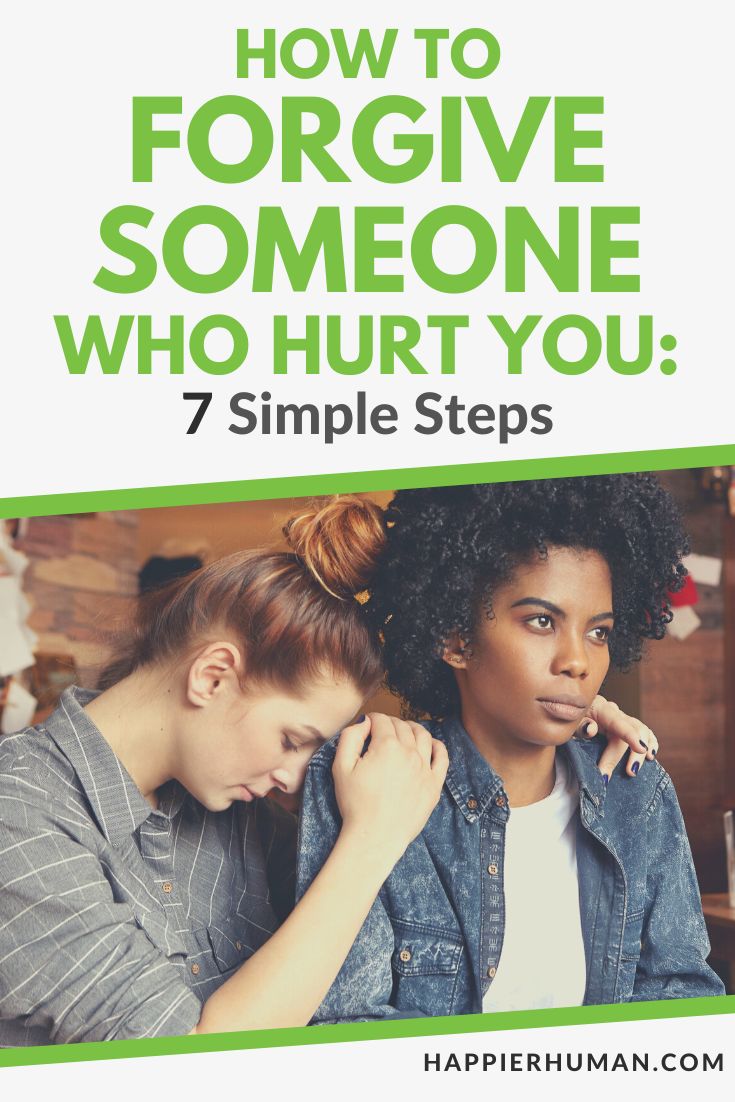The only people with whom you should seek to get even with are those who have helped you. ~ Lori Grenier
We have all been let down by someone or been in a toxic situation… whether in personal relationships, our families, or our jobs. Let's be honest; it wouldn't hurt so much if we didn't care.
Maybe our trust was betrayed, or perhaps we expected the same level of care, dedication, commitment, or love from others as we had shown ourselves.
No matter the circumstances, forgiveness is not always an easy thing. Some of us hold grudges, while others go a step further and seek revenge. This is because they want the person who hurt them to feel the same hurt and disappointment they experienced.
When we were kids, and someone hurt our feelings or mistreated us, we were back playing together the next day. This happened even after we were forced to make insincere apologies to one another.
However, as we grew up, the issues that separated us cut more deeply and took longer to heal. It is to our benefit to learn to forgive those who have hurt us so that we are not stuck living in the past.
Even worse, allowing this pain and disappointment to fester can eventually take control and define our lives…becoming our driving force. And the direction it will lead us is no place good.
What is Forgiveness?
Psychologists define forgiveness as the conscious, deliberate choice to let go of feelings of anger or resentment toward a person or group that caused you harm. This is regardless of whether it is deserved or not.
Forgiveness does not gloss over or deny the seriousness of the offense one has committed against you. Likewise, forgiveness doesn't mean forgetting, making excuses for, or condoning someone’s actions.
Furthermore, while forgiveness is good for helping you repair a damaged relationship, it doesn't give you the obligation to be reconciled with someone who caused you great harm. It doesn't mean you release them from any legal accountability.
Many of us think of forgiveness as a generous, kind act… one of compassion and mercy that we expend on a person who has treated us poorly. This is true and brings us many great benefits, even if we don't initially see or feel like it.
The Benefits of Forgiveness
Forgiveness gives you freedom from internal anger and peace of mind. Although there is debate as to whether true forgiveness requires having positive feelings toward the offender, most experts feel that forgiveness involves releasing deeply held negative emotions. Doing so empowers you to take note of the anguish you have gone through without allowing it to define you. Instead, it enables you to heal from it and move on with your life.
Decades of research have shown enormous personal benefits that can be gained by offering a person forgiveness. Here are some of the most compelling ways to show how forgiveness is good for us, our relationships with others personally, our jobs, and our communities.
How to Forgive Someone Who Hurt You: 7 Simple Steps
Step 1. Know that it is ok to feel angry or upset.
Most of us like to feel we are in control of our emotions. It is said that we give others power over us when we get frustrated or upset about others' actions. But part of being able to forgive is not shifting the blame from others to ourselves.
Instead, it is to know that we are justified in feeling how we feel. Someone mistreated us, and it is going to harm us emotionally. Choosing to forgive helps us move on and not be controlled by our emotions any longer.
Step 2. Ask yourself if holding on to anger is harmful or beneficial.
It is one thing to be angry about what someone has done to us. But we must ask ourselves if holding on to it long-term is helping or hurting us. Holding grudges tends to do more harm than good, even if it may feel good.

Letting go and not holding on to those negative feelings is the first step in enabling us to move forward. There is a lot more positive awaiting us in the future. We must free our hands from past pain to embrace it fully.
Step 3. Decide to forgive the person who wronged you.
Sometimes, it is as easy (or difficult) as deciding to forgive. Take a proactive approach and try to forgive. We get tired of those negative feelings, emotions, and thoughts of what happened to dominate our minds. So, before it leads to sadness, depression, or worse, develops into thoughts of retribution, we must decide to forgive.
For most people, forgiving happens when we realize we have allowed what happened to us to affect our moods and decision-making reasoning. It is a way to have the situation under control and the problem not have us.
Step 4. Realize that you are not excusing someone’s bad behavior towards you.
Many of us hold on to grudges because we feel we are letting the offender “off the hook.” However, forgiveness is not excusing someone’s offensive behavior toward you. It is choosing to forgive for yourself and not for others.
Remember that you are forgiving because you want to move on, not because the person deserves it. You know what they did to you was inappropriate and downright nasty sometimes, but you choose to cleanse your heart. Again, you don’t excuse the actions done to you, but you accept it and make peace with it. That is very different.
Step 5. Remind yourself why you want a relationship with the person you are forgiving.
Depending on how close you are to the person and your history together, you may want to consider why you want a relationship with this person seriously. Forgiving is the only way to move forward and have a meaningful relationship.
We may often be stubborn and feel justified in holding on to our grudges. Still, depending on the relationship, forgiving is most beneficial for our mental health and peace.
For instance, Sarah went through a period of depression when she lost her father suddenly in a tragic accident. During her darkest days, she was inconsolable and became emotionally abusive. Her husband, Jeff, tried everything to comfort her, but she often took her anger and frustration from him. Sarah even resorted to telling Jeff that he was “good for nothing.”
This drove a wedge into their relationship. However, Jeff chose to forgive as the two sought to fix the relationship. He loved Sarah, valued the marriage, and wanted to take steps to make things work.
Step 6. Set healthy boundaries.
We have all dealt with relatives, friends, or “so-called friends” who do things that are very offensive to us. For some of them, it is just the way they are. They speak what is on their minds and are very unapologetic about it. But we must also realize that we can't make everyone happy, nor should we try.
In those cases, it is best to set healthy boundaries. Biblically, this is called “guarding your heart” (Proverbs 4:23). When we guard our hearts, we walk in forgiveness while not giving the person access to us like they used to have.
For example, you invited your cousin over for dinner. While there, she snuck into your bedroom and stole some of your jewelry. She is your cousin; you two grew up together, and you chose to forgive her. But remember, she never has to get invited to your house again.
Step 7. Forgive yourself.
One of the hardest things we can do yet and the most beneficial is to learn to forgive ourselves. It is a powerful yet effective form of self-care. So often, we incarcerate ourselves mentally and emotionally because of the wrong someone else did to us.
We don't understand how we could have let this happen to us, why we did not see the warning signs, or why we didn't listen to others when they tried to tell us about a person. I have been through this.

I used to be mad at myself for having a too big heart. I remember venting to a friend and telling him that I would harm everyone else before they could harm me. I also planned to treat others the way I had been treated. This upset him, and he said, “You can’t do that!” I replied, “Why not?” Then he said something that changed my life at that moment. He said, “Because you are not like them.”
After some thought, I realized I was not as mad at those who hurt me as I was myself. So, instead, I blamed myself for what happened, and it was not my fault. I didn't get back what I gave to others. So, for that, I forgave myself and chose to forgive them.
Final Thoughts on How to Forgive Someone Who Hurt You
Remember, the path to forgiving someone who hurt you is not always easy, but it is a necessary path to travel. As you have seen in this article, it is to our benefit to be forgiving people. I always say, “Life is not so much what happens to us but our response to what happens.”
It has been said that holding a grudge is like drinking poison and expecting the other person to die. The offender is going on with his or her life while we are stuck in a moment that profoundly bruises us, and we feel that our anger towards them harms them somehow.
Resentment can even make us delusional to the point of thinking that everything our offenders post about on social media or every moment of their day, they are thinking of ways to do us harm. That couldn't be further from the truth. We are frustrated, and they are in the Bahamas enjoying themselves (figuratively).
Holding a grudge kills us slowly and hinders relationships with others who did not offend us. In other words, it can make us toxic. Moreover, holding a grudge takes us from being the wounded to someone inflicting wounds on innocent bystanders.
But that is not who we are. We are reasonable people who desire to live a peaceful and joyful life. And it all starts when we learn how to forgive.
See more posts that may help you forgive others and, perhaps more importantly, forgive yourself.
- 4 Types of Forgiveness and When to Apply Each
- 16 Strategies to Forgive Yourself for Past Mistakes
- How to Write a Forgiveness Letter (with an Example)
- 17 Prayers for Forgiveness: Forgive Yourself & Others
- 105 Forgiveness Quotes to Help You Let Go of Your Hurt


